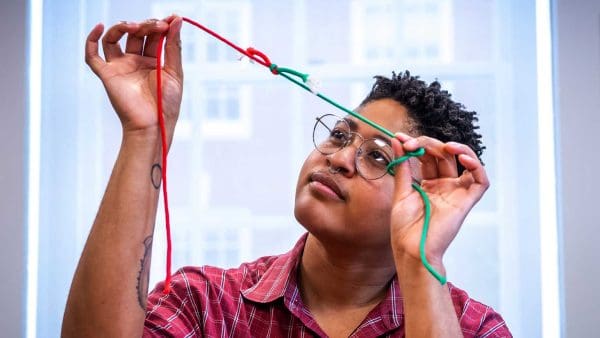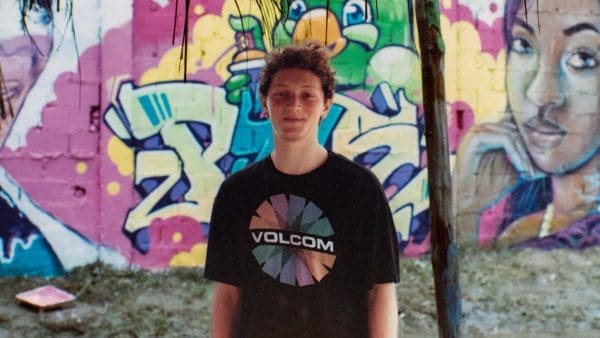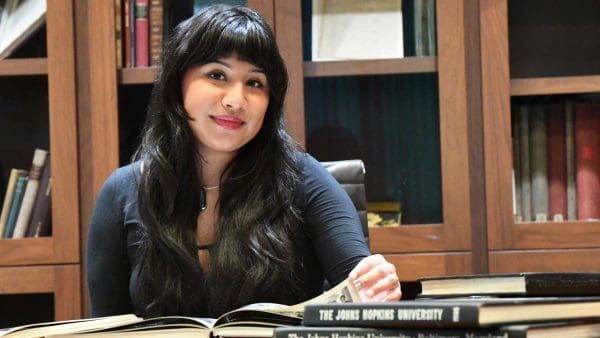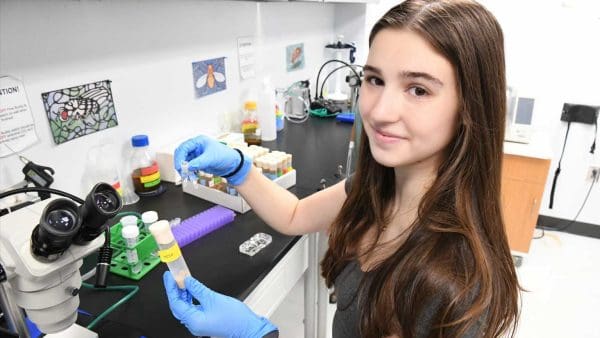
Senior neuroscience major Deeya Bhattacharya has a supporter to thank for making it easier for her to attend Hopkins. She just doesn’t know who it is. Since her freshman year, she says much of the “financial burden” of tuition has been relieved through an Anonymous Undergraduate Scholarship award. The mystery person can have confidence that their investment is well-placed when you consider all the ways Bhattacharya propels herself into academic and campus life.
Since her second semester, she has worked in the Solomon H. Snyder neuroscience lab at the School of Medicine. Earlier this year, she was among the researchers named on a study published in the Proceedings of the National Academy of Sciences examining the role a protein called Histone H2AX has in maintaining the healthy functioning of brain cells.
“Basically, we removed the histone from the genome of some mice and observed how that affected their cells and their behavior,” Bhattacharya says. “What we found was that they were smaller and seemed to have less capability to do things, similar to behaviors that you would see in patients that have degenerative disease over time. My experiments showed that knocking out the histone impaired oxidative phosphorylation.”
And so the study not only increased the general understanding of neural functioning but also has implications for scientists looking to combat diseases such as Parkinson’s. “We started out wanting to find a mouse model for neurodegenerative diseases in the brain,” Bhattacharya says. “And because this histone has to do with metabolism we thought that removing it could have something to do with such diseases.”
When not working with mouse tissues, Bhattacharya can be found making music with the Notes of Ranvier, a campus a cappella group. But there is a neurological connection here as well. The name alludes to the nodes of Ranvier, structures nerve cells use for proper intercell signaling. “It’s funny that the name is a neuroscience pun, but I’m the only one from that major in the group,” Bhattacharya says. The Notes perform in vocal competitions, at benefit performances that have raised over $1,000 to support after-school programs in Baltimore, and at free concerts at nursing homes.
She is also the co-director of the Sexual Assault Resource Unit at Hopkins, which operates a 24-hour, peer-led crisis line, and volunteers at the Family Trauma Center of the Kennedy Krieger Institute in Baltimore, interacting with children who have either suffered domestic abuse or have witnessed it in their households. “It’s humbling and eye-opening,” she says of her work there.




